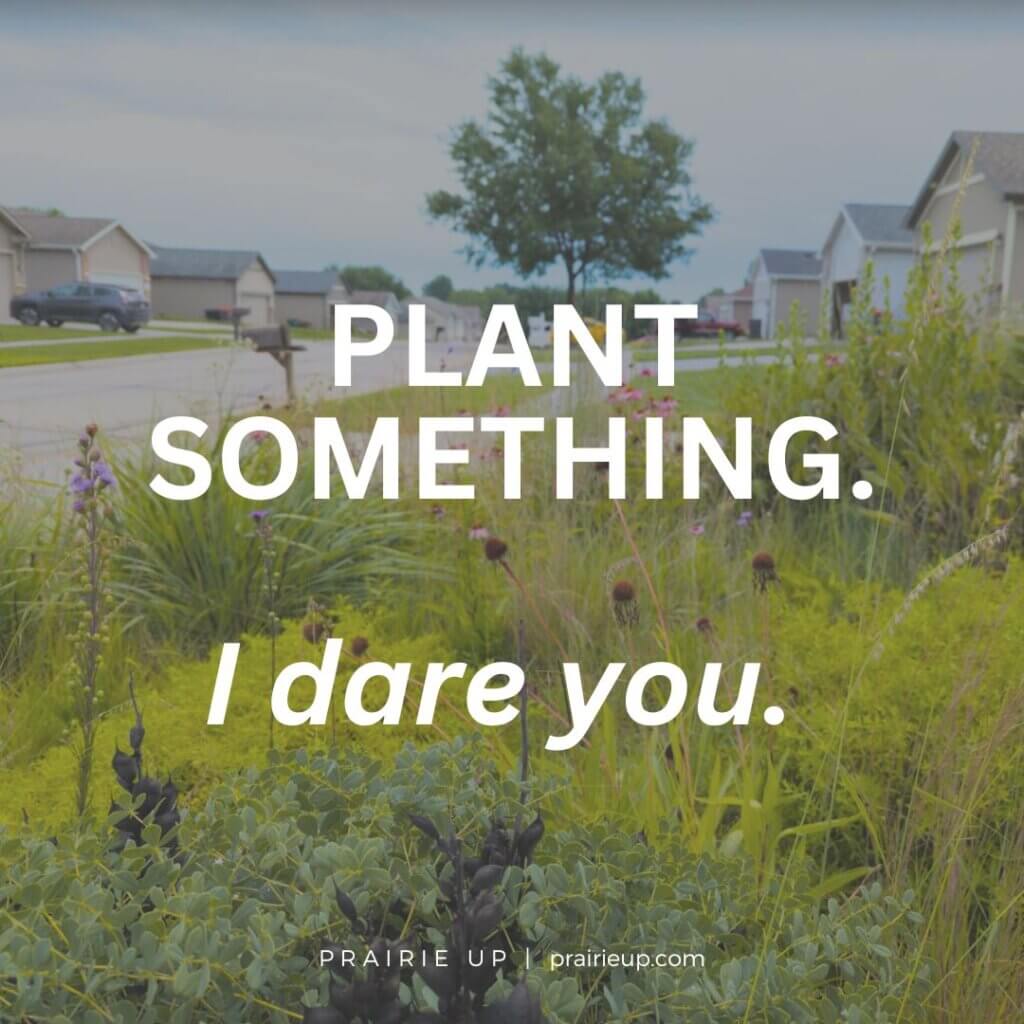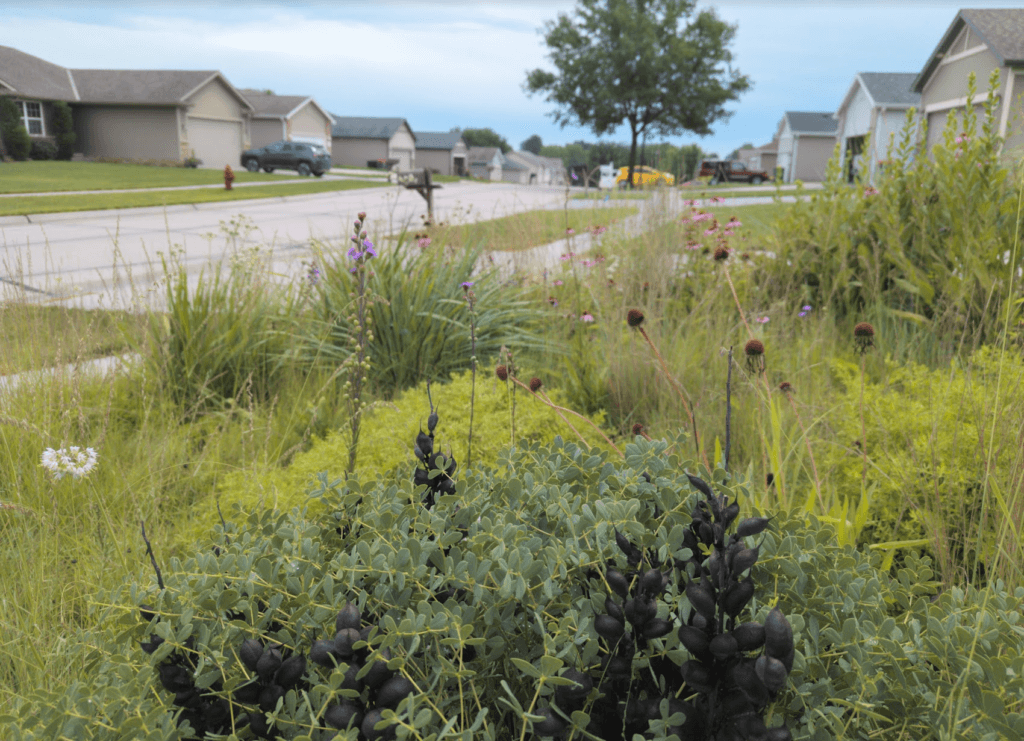A Note on Future Appearances
Benjamin is actively working to reduce his carbon footprint while providing more inclusivity with his presentations. To that end, he will be taking on fewer engagements that require long-distance travel and prioritizing online lectures and workshops, with which he has had great success; check out this matrix garden lecture for Wild Ones. Benjamin is confident in the value of online interaction as well as the ability it affords to reach more people while being environmentally sensitive (not to mention more affordable for the host organization). He is excited to discuss with you any potential event, online or in person, as we work to unlawn America.
"Change can be difficult, but never have I heard change presented so eloquently and beautifully, with moments of humor interjected throughout."
Ben Futa, former director, Allen Centennial Garden Tweet
Why gardening with native plants is an ethical imperative in a world of climate change and extinction. This deep dive explores ecology, science, psychology, and philosophy as we ponder how to embrace gardens as places to create empowering social and cultural change. Watch the presentation.
A candid, vulnerable, and authentic look at over a dozen projects that haven’t gone as planned, complete with adjustments made and the failures or successes that occurred. From sun to shade and planted to sown projects of all sizes, there will be a landscape that every audience member will identify with — realizing they are not alone in the worthwhile journey of natural design
Let’s learn from natural plant communities to increase ecosystem function and climate resilience at home in our designed gardens. From the fundamentals of plant succession over the years, to using plant reproduction and habit to fill ecological niches, the right native plant communities make all the difference for beautiful gardens both wildlife and people crave.
Yes, you can have a pollinator meadow garden in shade! We’ll explore using sedge as a matrix, then go over some of the flower families you might be able to use. We’ll also make a special nod to using plugs over pricey and hard-to-plant gallon containers.
How do you create a highly-visible landscape that’s full of “wild” native plants? What design strategies can you use to make it visually appealing to neighbors and the HOA, yet low maintenance and ecologically thriving? Learn from my experience getting notices from weed control and speaking with inspectors.
Taking 18 often-sold perennials, we’ll weigh the pros and cons of each plant then create a landscape plan based primarily on plant behavior. This is an ideal introduction for weekend warriors on how to work with what’s available at big box stores while creating a resilient, natural garden.
We’ll delve into the history of lawns in the United States, the problems they cause, then spend most of the time learning how to convert from lawn to designed meadow garden. From plant selection to design, prep to management, this lecture runs the gamut on empowering folks to make local change
All of the 20 online classes can be adapted for a presentation to your organization.
Benjamin has educated, inspired, and challenged audiences around the country to step up and garden with empathy for all species together through both practical and philosophical means. He has engaged multi-million dollar corporations, botanic gardens, nature centers, national nonprofits, regional wildlife groups, and master gardener organizations. If you’re ready for a bold call to action and practical instruction on how to design with nature for climate resilience and habitat, please contact us.
Previous engagements include:
Jenkins Arboretum and Gardens | Olbrich Botanical Gardens | The Nature Foundation of Will County | Brookside Gardens | Boston Scientific | International Master Gardener Conference | Homegrown National Park | Wild Ones | Phipps Conservatory and Botanical Gardens | Metro Hort Group | Ecological Landscape Alliance | Tallgrass Prairie Center | Garden Masterclass | Grow Native Massachusetts | David Suzuki Foundation | Pennsylvania Horticultural Society | Plant it Wild | University of Minnesota Landscape Arboretum | Association of Professional Landscape Designers | Conservancy for Cuyahoga National Park | Lewis Ginter Botanical Garden | Memphis Horticultural Society | Myriad Botanical Gardens | North Carolina Botanical Garden | Northwest Flower and Garden Show | Western Nursery and Landscape Association | Michigan Wildflower Conference | University of Wisconsin-Madison Arboretum | Midwest Native Plant Society | Denver Parks and Recreation

1/29/26 — Nebraska Nursery and Landscape Association
5/14/26 — Ohio State Master Gardeners
1/13/25 — Wild Ones Illinois Prairie Chapter — online
1/22/25 — Olbrich Botanical Gardens — online
2/11/25 — Homegrown National Park (w/ Doug Tallamy and Rebecca McMackin) — online
3/1/25 — Anne Arundel County Watershed Stewards Academy — online
3/21/25 — Birmingham Botanical Garden — online
4/9/25 — River Creek Watershed District — online
5/7/25 — Ecological Gardening Summit, Growing a Greener World — online
10/20/25 — Kalamazoo Master Gardeners — online
11/1/25 — Master Gardener Association of Northwest Indiana — online
